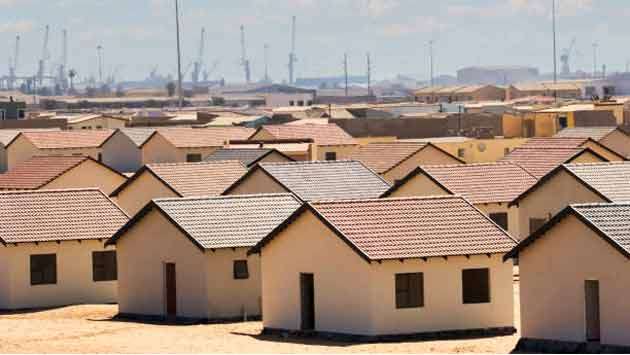– By Mass L. Usuf
The Public Representations Committee on Constitutional Reform (PRCCR) appointed by the Cabinet of Ministers on the 22nd of December 2015, has released its Report with regard to the proposed Constitutional reform.
The more than 300-page Report goes on to state that a study of the representations made by the public reflects a desire in the people throughout Sri Lanka towards democratisation of the State, establishment of the Rule of Law, broadening Fundamental Human Rights, Peace and Reconciliation and strengthening of independent commissions.
The PRCCR recommendation inter alia regarding Article 9 was interesting to read specially, from the perspective of the desire towards democratisation. It merits a critical evaluation from the view point of the Report and the usefulness of Article 9 itself.
The recent Sri Lankan history is pregnant with the germ of political opportunism, nationalism and later Sinhala Buddhist nationalism. Each of these ‘isms’ singularly and collectively conceptualising and institutionalizing Article 6 of the 1972 Republican constitution, the precursor to the present Article 9 of the 1978 Socialist Democratic constitution. Many in the past have argued that the rise and institutionalisation of Sinhala-Buddhist nationalism in post-independent Sri Lanka bear much responsibility for today’s protracted ethnic conflict between the majority Sinhalese state and the minority Sri Lankan Tamils. [i]
Prophecy
A Federal Party member, K.P. Ratnam, criticizing the formative document [ii] that led to Article 6 and now Article 9 prophetically stated in 1972:
“I wish to tell you that this position will be a cause of continuous strife for this country” [iii]
As I write this today, even after the lapse of 44 years of this prophecy, the conflict has extended from the Tamils to the Muslims and the Christians. Some robed racists continue the pretense of having taken upon themselves what the State is supposed to do – that is to give the foremost place to Buddhism per Article 9. These fascists are pretentiously claiming to ‘protect’ Buddhism using everything that violates the Buddha dhamma viz. hate speech, manufactured lies, violence and fear mongering.

Scant academic or political discussion has taken place on the impact of Article 9 on the right to religion of the non-buddhists. The ramification of this Article on a pluralistic society like Sri Lanka is largely unexplored publicly. Sri Lanka is a signatory to several international treaties on human rights etc.
Chapter II – Buddhism
Article (9) “The Republic of Sri Lanka shall give to Buddhism the foremost place and accordingly it shall be the duty of the State to protect and foster the Buddha Sasana, while assuring to all religions the rights granted by Articles 10 and 14(1)(e).”
This critique of Article 9 is aimed at evaluating two arguments. Firstly, the adaptation of the word ‘Buddhism’ into the Constitution and, secondly, the creation of a clear dichotomy between Buddhism and other religions.
I have always maintained that Article 9, is a flawed piece of constitutional legislation finding its home within the so called democratic constitution. As for the first argument, primarily, it is not clear as to what is meant by the word Buddhism. It is not defined anywhere in the Constitution. Further, there is no evidence that Gautama Buddha, the architect of what is being called Buddhism, ever mentioning that his teachings be called as Buddhism. The word Buddhism, as in many other instances, has been named after the founder of the religion or philosophy. For example, Zoroastrianism (Zoroaster), Christianity (Christ), Confucianism (Confucius). This position in relation to the teachings of Buddha, in my view is absolutely wrong. The Buddha never taught Buddhism. He taught the Dharma (Sanskrit) or Dhamma (Pali). Dhamma, literally meaning “the nature of all things” or “the truth underlying existence”.
“There is no term in Buddhist terminology wider than dhamma. It includes not only the conditioned things and states, but also the non-conditioned, the Absolute Nirvana” writes the Theravada Scholar Walpola Rahula Thero. “There is nothing in the universe or outside, good or bad, conditioned or non-conditioned, relative or absolute, which is not included in this term.” (What the Buddha Taught, p. 58).
Incidentally, this word dhamma has a close resemblance to the word “Deen” in the Quran which also denotes a comprehensive and an all-encompassing meaning besides the simple meaning religion. An exciting field to explore from the perspectives of comparative religion and epistemology.
Anglicised Buddha
Another interesting fact is that unlike the word dhamma which is a Pali term, the word ‘Buddhism’ is neither Pali nor a Sanskrit word. It is probably an anglicised version of the word Buddha. It is said that the word ‘Buddhism’ for the first time in print, was used by a British surgeon and devoted amateur botanist, Dr. Francis Buchanan in 1797, who had been a member of a British diplomatic expedition to the Kingdom of Ava, in what is now Burma. (Buchanan’s essay, On the Religion and Literature of the Burmese).
Quite a different claim has it that the term “Buddhism” has only been adopted since its first use in the 1816 Asiatic Journal and then only popularized by Edward Upham’s book The History and Doctrine of Buddhism. (As quoted in The Story of Buddhism: A Concise Guide to its History & Teachings by Donald S. Lopez Jr., Professor of Buddhist and Tibetan studies at University of Michigan).
Therefore, it can be concluded that there is a fundamental mistake in the use of terminology in Article 9, if it means to refer to the teachings of the Buddha. Currency should be given to the exact and accurate usage of the relevant terminology since the constitution is the document of the State. The most suitable word to my understanding should be Dhamma or Buddha dhamma. The use of the word dhamma will represent the correct and precise teachings of the Buddha.
PRCCR Recommendations
The Committee has recommended different formulations for the consideration of the Constitutional Assembly:
Retain Article 9 (Chapter II) of the current Constitution with no change.
Heading of Chapter II of the current Constitution should state ‘Religions’ and not Buddhism and retain Article 9 as it is with no change.
Reformulate Article 9 of the current Constitution as follows:
“The Republic of Sri Lanka shall give all religions equal status. The State shall protect and foster Buddhism and the Buddha Sāsana while assuring to all religions the rights granted by Articles 10 and 14(1) e of the current Constitution”.
Sri Lanka shall be a secular State.
Sri Lanka shall be a secular State while recognising the role of religion in the spiritual development of people.
Heading of Chapter II of the current Constitution should State ‘Religions’. The clause should be revised as follows:
“The Republic of Sri Lanka will give all religions equal status”
Recommendations numbered 4 to 6 directs Sri Lanka towards being a secular State effectively removing the present Article 9 in toto. The first three recommendations in relation to reformation want the status quo to remain as it is with some cosmetic changes. The title of Chapter II, which is ‘Buddhism’ at present to be changed to ‘Religion’ and removal of the words ‘foremost place’ but ensuring protection and fostering of Buddhism.
Apparently, no one in the Committee has taken notice of the inappropriate use of the term Buddhism in Article 9. Evidently not even the Mahanayakes or other members of the clergy seem to have made submissions in this regard.
In continuation of this critique, I shall argue on the creation of a clear dichotomy between Buddhism and other religions by Article 9. The debatable detriment that this Article poses to the Buddhists themselves. And, finally, traverse the effect of Article 9 on what the PRCCR Report states about the desire of the people towards Peace, Reconciliation, Rule of Law and democratisation.
[i] The Open Area Studies Journal, 2011, 4, Pages 73-85, Contemporary Sinhala-Buddhist Nationalism in Sri Lanka: The Relevance of a (Neo-) Marxist Interpretation by Shyamika Jayasundara-Smits* International Institute of Social Studies, Erasmus University, The Hague, The Netherlands.
[ii] Draft Basic Resolution (3) on Buddhism.
“In the Republic of Sri Lanka, Buddhism, the religion of the majority of the people, shall be given its rightful place and accordingly, it shall be the duty of the State to protect and foster Buddhism, while assuring to all religions the rights granted by Basic Resolution 5(4).”
Constituent Assembly (1972) Constituent Assembly Committee Reports, 17th January 1972: pp.88-9. (Cited in Buddhism And The Constitution: The Historiography and Postcolonial Politics of Section 6, By Benjamin Schonthal)
[iii] Constituent Assembly Debates: Col Col.947. : Direct quote translated from Tamil. (ibid.)
Source: https://www.colombotelegraph.com
Post Disclaimer | Support Us
Support Us
The sailanmuslim.com web site entirely supported by individual donors and well wishers. If you regularly visit this site and wish to show your appreciation, or if you wish to see further development of sailanmuslim.com, please donate us
IMPORTANT : All content hosted on sailanmuslim.com is solely for non-commercial purposes and with the permission of original copyright holders. Any other use of the hosted content, such as for financial gain, requires express approval from the copyright owners.
 Sri lanka Muslims Web Portal Sri Lanka Muslims News Center
Sri lanka Muslims Web Portal Sri Lanka Muslims News Center
 Donate
Donate


